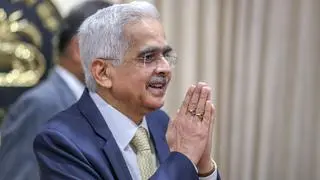India is facing pressure at the on-going Regional Comprehensive Economic Partnership (RCEP) negotiations from members such as the ASEAN bloc, Japan and South Korea to conclude a free trade pact in goods earlier than one in services.
New Delhi, however, is unwilling to fall in line with the demand following its bitter experience with the 10-member ASEAN countries with which it had agreed to sign a FTA in goods first.
Sub-group meetingsTalks between RCEP members, which also include China, Australia and New Zealand, are happening in various sub-group meetings at the moment, with New Delhi set to host the next round of talks in December. The pact seeks to include goods, services, investments, competition and intellectual property.
“There is immense pressure on us in these sub-group meetings to agree to de-link goods from services, but we are not budging. With ASEAN, we hardly got any concessions in services as we had concluded an FTA in goods first and had no bargaining chip left. In RCEP we are not prepared to do the same and the entire pact has to be signed in one go,” a Commerce Ministry official told BusinessLine .
Negotiation on RCEP, which will be the largest trading bloc in the world accounting for 45 per cent of population and combined GDP of over $21 trillion, began in 2013 and is scheduled to be concluded by 2015.
But, talks have hit muddy waters, as there is no concurrence on important issues such as level of ambition for the initial offers, the divergence in offers made to individual members and whether all parts of the comprehensive pact should be concluded together.
“India wants to be conservative in its initial offers because of China, but other RCEP members want a high level of ambition even at the initial stages,” the official said.
There is also no unanimity on the divergences that members would be allowed to have. While India is prepared to be liberal with trade partners such as ASEAN, Japan and South Korea, with which it already has signed FTAs, it cannot be as open with China because of Indian industry’s inability to cope with open competition from the country.
Similarly, countries such as New Zealand and Australia, with which India has no trade pact, cannot be treated on the same footing as FTA partners.
“It is very important for us to be allowed divergences as we cannot treat all members of the RCEP alike. We hope the grouping recognises and provides us the needed leeway,” the official said.
India is keen to be part of the RCEP despite China’s presence in the grouping as it is not part of either the Trans-Pacific Partnership (TPP) or the Transatlantic Trade and Investment Partnership (TTIP) — the other two extensive regional trade deals under negotiations. There is a risk that India would have to face higher duties than its rival countries in most markets if it is not part of any major trade pacts.






Comments
Comments have to be in English, and in full sentences. They cannot be abusive or personal. Please abide by our community guidelines for posting your comments.
We have migrated to a new commenting platform. If you are already a registered user of TheHindu Businessline and logged in, you may continue to engage with our articles. If you do not have an account please register and login to post comments. Users can access their older comments by logging into their accounts on Vuukle.